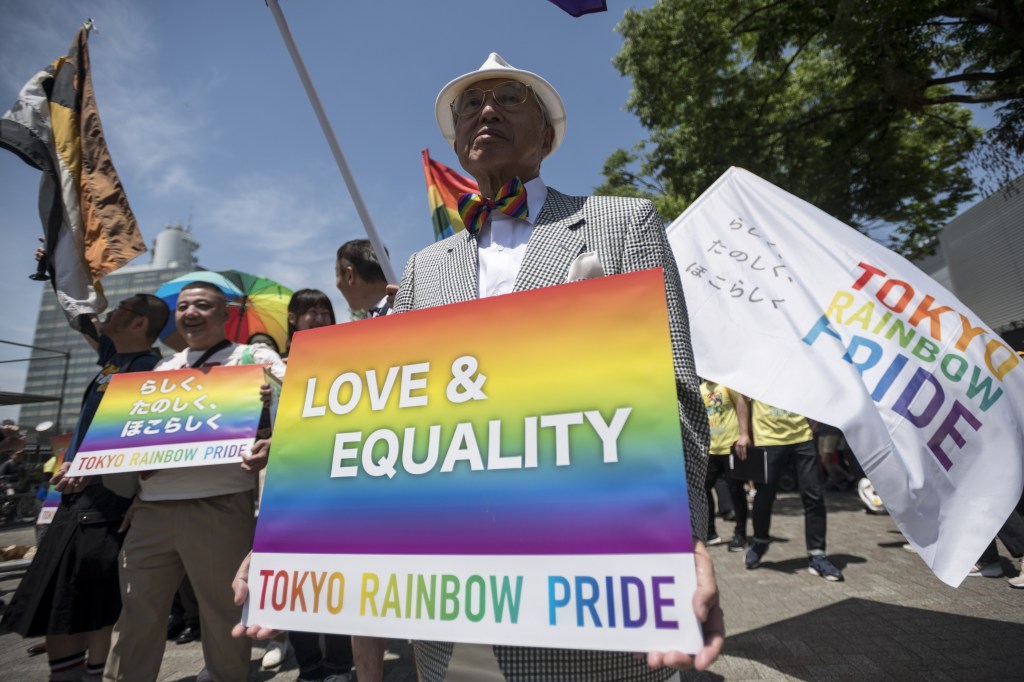Japanese court rules forcing trans people to be sterilised is ‘unconstitutional’

Japan’s Supreme Court has ruled requireing trans people to have sterilisation surgery is unconstitutional (LEONARDO MUNOZ/AFP via Getty Images)
Japan’s top court has declared it unconstitutional to require trans people, who want to legally transition, to be sterilised.
The decision marks the first time the Supreme Court has judged the clause unconstitutional and comes just days after a family court in the country considered a similar case.
On Wednesday (25 October), the Supreme Court’s 15-strong grand bench ruled on the constitutionality of the Gender Identity Disorder Special Cases Act, after an unnamed transgender woman – who has not undergone surgery – began legal action.
The woman, whose identity has been withheld to protect her privacy, says she lives “socially as a woman” but is documented as a male in her family registry because she has not had surgery.
The Japanese Times reported the woman’s lawyers, Kazuyuki Minami and Masafumi Yoshida, said the current law violates her right to pursue happiness and to live without being discriminated against.
The 2004 legislation states that trans people must have their reproductive organs removed for the state to recognise their transition and to have the gender assigned at birth changed on their family registry.
The law also says that, in order to legally transition, trans people must have a diagnosis of gender dysphoria confirmed by at least two doctors, be aged 18 or older, be unmarried and have no underage children.
LGBTQ+ activists and advocacy groups have long criticised the sterilisation requirement and wider legal process in Japan, with Human Rights Watch describing the requirement for surgery as “coercion” and requiring trans people not to have underage children as a violation of their right to privacy and family life.

the country’s constitution has to say. (Alessandro Di Ciommo/NurPhoto via Getty Images)
The Supreme Court’s decision comes just days after the a family court in Shizuoka, on the island of Honshu, ruled it was unconstitutional to require trans people to be sterilised.
The ruling came after trans man Gen Suzuki filed a request in 2021 to change his gender to male on official documentation but did not wish to have surgery on his reproductive organs.
Suzuki, who was diagnosed with gender dysphoria at the age of 40, had hormone therapy treatment and top surgery, but drew the line at the required sterilisation procedure.
He argued such a requirement was inhuman, and the court, in a landmark ruling, agreed. “I want children to hang on to their hope. I want to see a society where sexual diversity is naturally accepted,” he told The Associated Press.
The World Health Organization, UN Human Rights Office and several international bodies have previously called for the elimination of forced, coercive and otherwise involuntary sterilisation. Currently, trans people can change their legal gender in 86 countries, but 39 require surgery.
Japan remains the only G7 nation which does not legally recognise same-sex marriage, with the country’s constitution declaring that such a union is between a man and woman. There are also no discrimination protections for LGBTQ+ people.
However, support for the LGBTQ+ community in the country has been growing, especially among younger people, with recent data suggesting 69 per cent back same-sex marriage, 66 per cent are in favour of same-sex adoption and 69 per cent agree trans people should be protected from discrimination.
How did this story make you feel?

